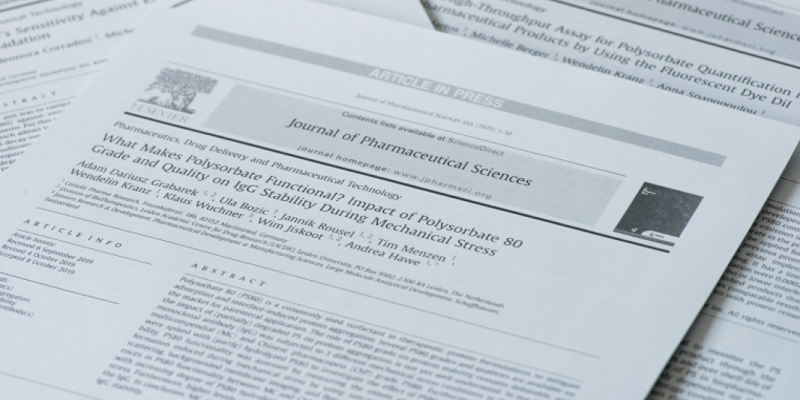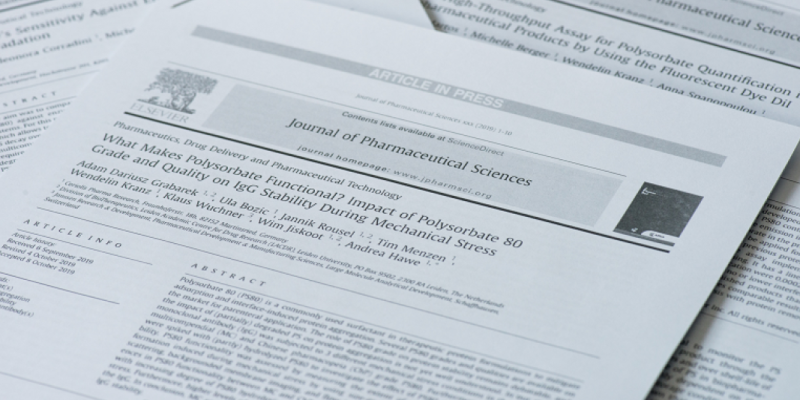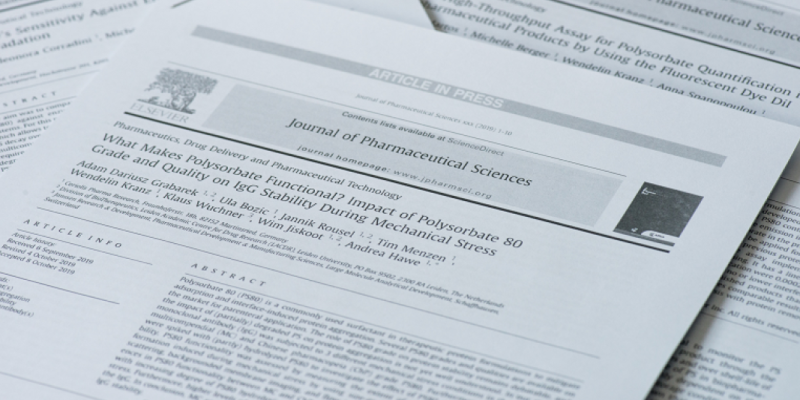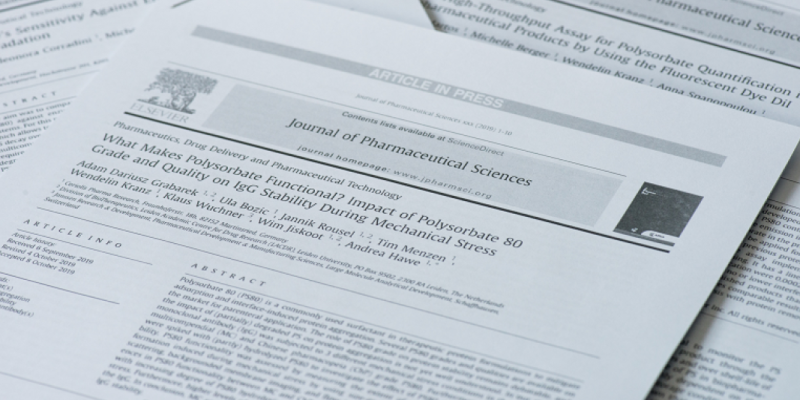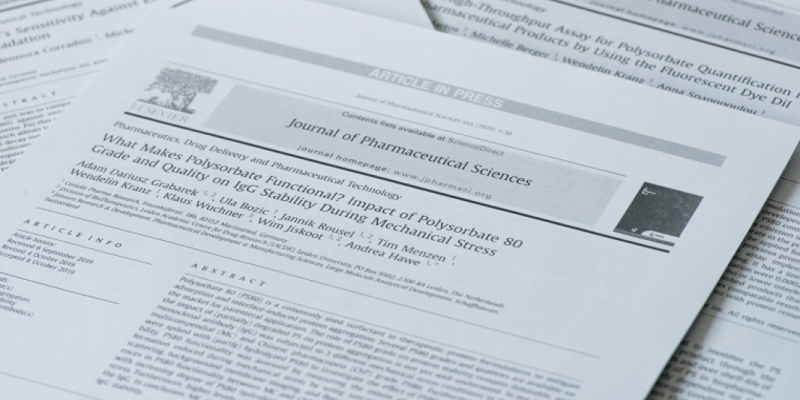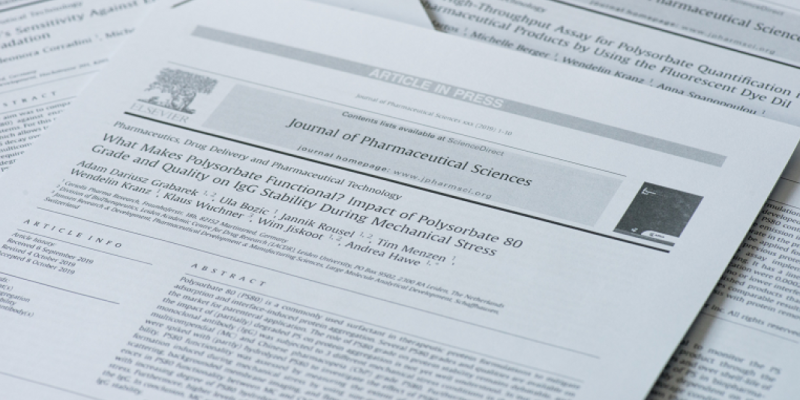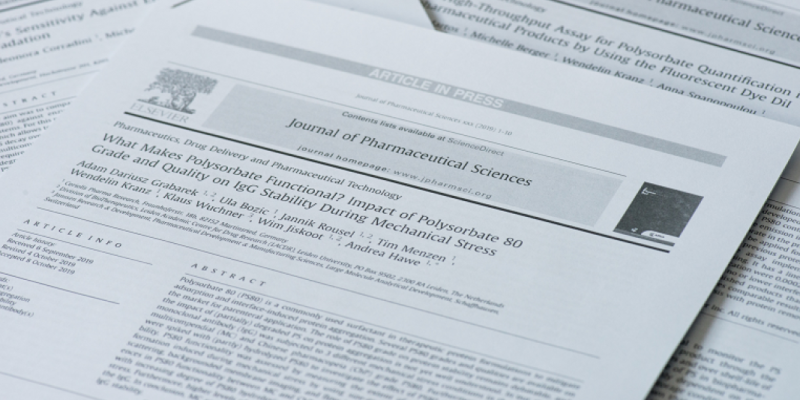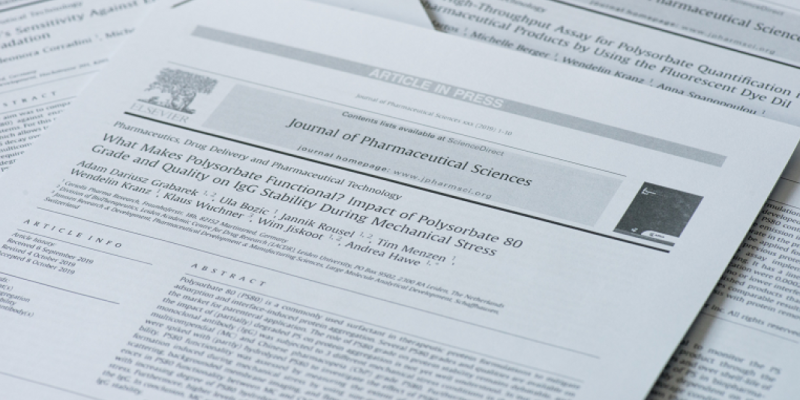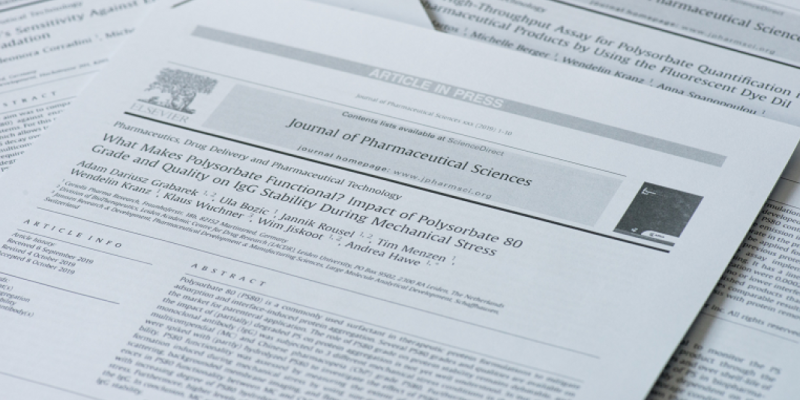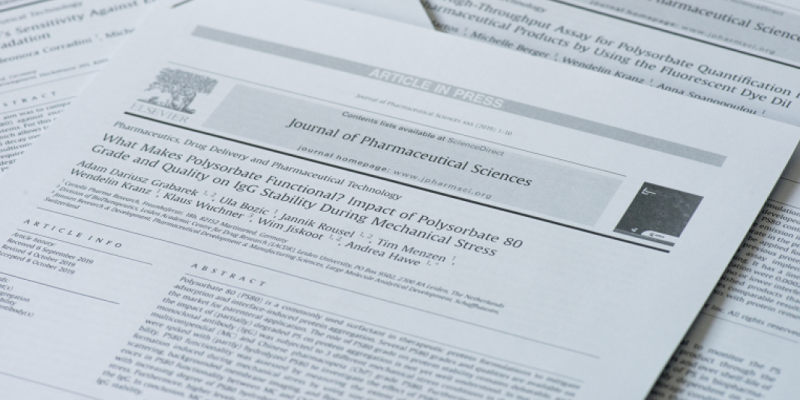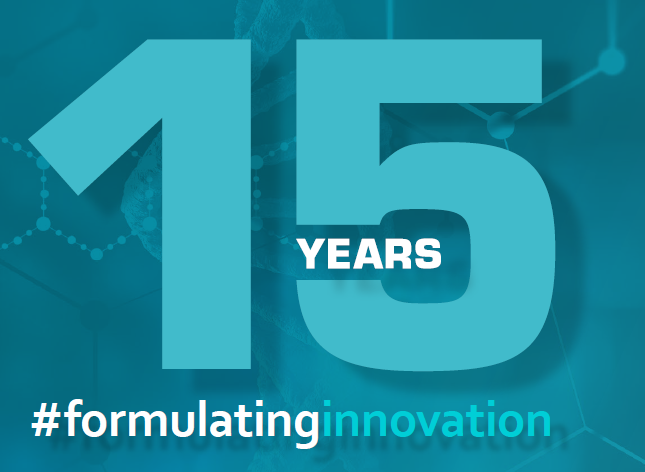Transient molten globules and metastable aggregates induced by brief exposure of a monoclonal IgG to low pH.
J Pharm Sci. 2012 Jul
The presence of aggregates in therapeutic protein formulations is of great concern due to quality, safety, and efficacy issues. Nonetheless, the mechanisms and kinetics of protein aggregation are only partly understood. In this study, metastable immunoglobulin G (IgG) aggregates induced by a brief exposure to pH 1 were kept at 4°C and analyzed over time by size-exclusion chromatography (SEC), nanoparticle tracking analysis, light obscuration, dynamic light scattering, fluorescence spectroscopy, and circular dichroism. The results show the formation of polydisperse aggregates (from dimers to 10-μm particles) shortly after the pH-shift stress. These aggregates increased in size and number over time until a pseudo-equilibrium was reached after 5-7 days. The presence of transient, partially unfolded monomers (molten globules) was detected by SEC with online fluorescent dye detection. The molten globules seemed to either refold into the native state or become involved in aggregation pathways. Seeding pH-shift-induced aggregates into unstressed IgG did not accelerate aggregation during incubation for 3 weeks at 55°C. These results reinforce the role of partially unfolded species in the aggregation of therapeutic proteins. We conclude that the formation of pH-shift-induced IgG aggregates is likely driven by downhill polymerization, as a consequence of successive additions of molten globular monomers.
J Pharm Sci. 2012 Jul
https://jpharmsci.org/article/S0022-3549(15)31536-7/fulltext

